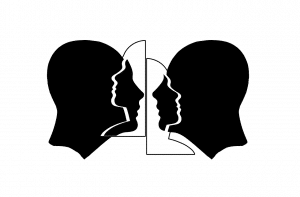What Are Empathy Skills
Empathy is what iI call the Rosetta Stone of life, and this is what it looks like. Most of us experience life in somewhat of isolation.
We’re in our heads, not our hearts. We experience the fact that we are all isolated one from another.

Imagine emotion as a language and imagine that everybody knows the language, but nobody really speaks it very well. Nobody really understands it very well.
It’s as if you’re sitting at the top of a castle tower and you’re looking out across the countryside. You see all of these other people in their towers and they all speak a language , but they can’t talk to one another and they can’t communicate with each other.

It’s as if there are hundreds of thousands of towers of babel, all in isolation. That’s what our experience is like with our emotions. we’re all in our towers, feeling isolated, unsure, not clear about what other people are doing, feeling, or experiencing, and sometimes not even sure about what we’re experiencing ourselves.
That’s where empathy comes in because, you see, empathy is the Rosetta Stone of life. How to Honor Your Emotions With This 1 Powerful Tool
Empathy is the skill that allows us to understand our own emotional experience and understand and speak to the emotional experience of everybody else. Empathy is what ends the isolation. Empathy is what allows us to be present and authentic with each other in very, very powerful ways.

And empathy is what differentiates the true leader that everyone wants to follow from the wannabes. The true leader who has empathy has a language that everybody can hear, that everybody can understand, that everybody wants to be a part of. Leadership With Empathy: 9 Reasons to Develop This Powerful Skill

The wannabe leaders don’t have it and that’s why they’re not true leaders. They’re just people out there in a dysfunctional hierarchy or dysfunctional group.
Empathy is a skill, not a trait. Empathy is something that must be learned and mastered. Empathy is the language of emotion and just like a language, you have to learn it.
How Most People Develop Empathy Skills
Most individuals will learn empathy while growing up through observing the interactions of those around them. But the problem is that empathy has been decreasing. A University of Michigan study, which analyzed data on empathy from almost 14,000 college students gathered between 1979 and 2009, found a 48% decrease in empathetic concern and a 34% decrease in perspective-taking, which is the ability to look at things from another person’s point of view. Furthermore, 96% percent of families are emotionally dysfunctional. The likelihood of learning empathy in childhood is very low.
A Better Way To Develop Empathy Skills
The fasted way to learn empathy is to learn how to listen another person into existence. We have a bundle of courses on this website that will teach you the “how” of empathy.
In it’s simplest form, the way to learn empathy skills is to learn how to read and reflect the emotions of others. I teach a 3-step process that is this:
Empathy Skills Step One
Ignore the words. Empathy is about emotions, not words. We have learned to focus on words to the exclusion of feelings. When you ignore the words, you have the attention and bandwidth to listen to emotions.
Empathy Skills Step Two
Read the emotional data field. This sounds hard, and it is very easy. Emotions are data and information that human brains have evolved to read and absorb very quickly. All you must do is get out of the way. Simply be in silence inside your head and the other person’s emotions will come to you automatically. It is effortless, fast, and effective.
Empathy Skills Step Three
Empathy requires that the other person know you understand his or her emotional experience. To show that you understand, you simply reflect back the emotions with a simple “you” statement. For example, you might say,”You are angry and frustrated.”
Despite your reservations about telling people how they feel, brain scanning studies show that emotional reflection has a powerful effect. When you reflect emotions with a “you” statement, the other person’s brain calms down almost instantly.
Empathy is as simple as 1-2-3. There is more to learn. The good news is that mastery does not take long or a lot of effort. Check out our courses here to learn more.

[…] This article has been reprinted with permission from Doug Noll’s website. […]